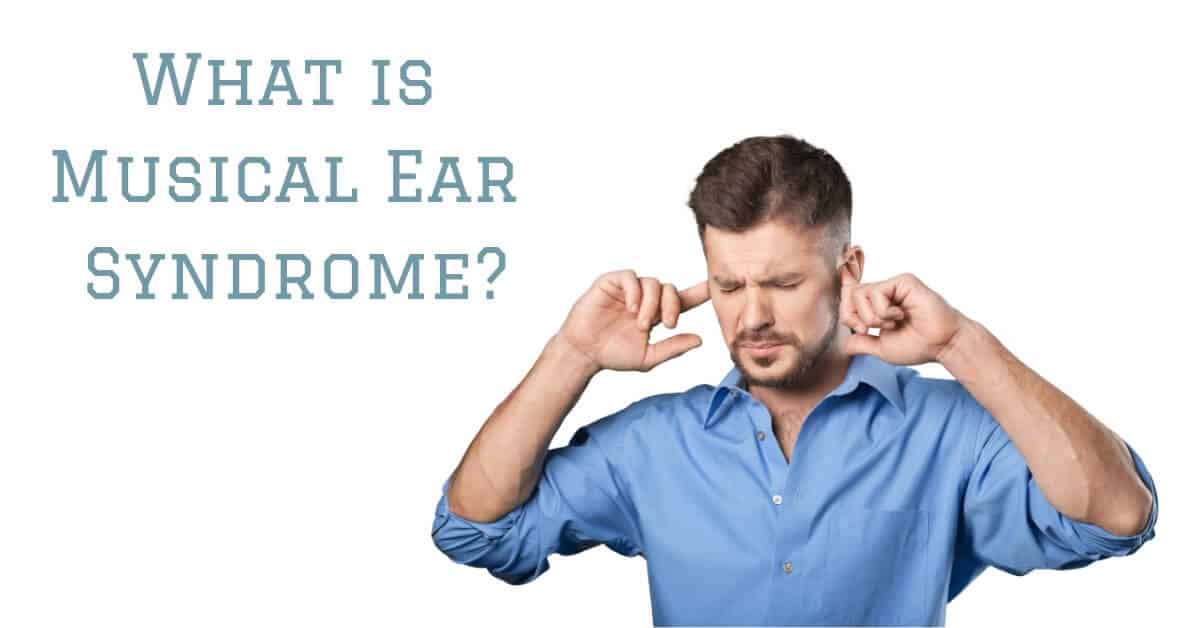
Do you have tinnitus? This ringing or buzzing in your ears doesn’t have an external source, meaning it’s all in your head. Some people also experience a type of musical tinnitus, called musical ear syndrome. Musical ear syndrome affects around 5% of the population. You may clearly hear a song, with or without music, and only realize later that it was all in your head.
What Is Musical Ear Syndrome?
Musical ear syndrome can be frightening at first. You might think you’re hearing things, hallucinating, or going crazy. But what you’re experiencing is musical ear syndrome. Some people may experience it as a melody played on a single instrument, or it could be a complex song with lots of instruments or parts. It could be your favorite song, or the sound of someone practicing scales. Most of the time, musical ear syndrome will be common songs you’ve heard often, such as Christmas carols or the national anthem.
Is it Different Than Getting a Song Stuck in Your Head?
We’ve all had a tune stuck in our head that we can’t stop hearing for a few days. What makes musical ear syndrome different is that the music will sound like it’s coming from a particular direction, and it doesn’t seem to be playing in your head. Since it sounds like it’s coming from outside of your ears, it can feel like you’re going crazy. You hear music coming from another room in your house, or drifting in the window from your neighbor’s house, and it may take some time before you realize that the sounds are in your head.
What Causes Musical Ear Syndrome?
No one is exactly sure what causes musical ear syndrome, but experts have a few theories. Many scientists believe that the mechanisms of musical ear syndrome are like those of tinnitus. When you have hearing loss, certain sounds are no longer audible, but the areas in the brain are still primed and ready to receive sound signals in these frequencies. These cells become hypersensitive and may begin firing in the absence of any other sounds. A study using EEG scanning discovered that when someone experienced musical ear syndrome, they had brain activation in their auditory centers, as well as in the areas of the brain associated with both music and language production as if they were actually listening to music! Basically, your brain experiences auditory deprivation, gets bored, and starts generating its own sound.
Is There a Cure for Musical Ear Syndrome?
Just like tinnitus, there’s no cure for musical ear syndrome. Once the cells in your ears are damaged, there’s no way to repair these cells and cure tinnitus or musical ear syndrome. But there are a few things you can do to manage musical ear syndrome and minimize its impact on your life.
Reduce Stress
Stress can make musical ear syndrome a lot more noticeable. When you feel stressed about what you’re hearing, it can make the sounds louder and more obvious. It can disrupt sleep, make it hard to concentrate, and even make it difficult to have a conversation. Find a way to lower your stress, whether through breathing exercises, going for a walk, or trying cognitive behavioral therapy.
Use Sound Masking
Since musical ear syndrome is more noticeable in the quiet, try sound masking to give your brain something to listen to. You can get out in nature, socialize more, or put on your favorite talk show. Hearing aids also have built-in sound masking programs that can reduce the experience of tinnitus and musical ear syndrome.
Check Your Medications
Some medications can make tinnitus or musical ear syndrome worse. Check your medications for side effects and talk to your doctor about what you’re experiencing. Changing your medication may help reduce musical ear syndrome.
Your Hearing Health
If you’ve been experiencing musical ear syndrome or you’ve started noticing tinnitus, book a hearing test and find out more about your hearing needs.
Wearing hearing aids will help you hear more of the sounds around you and give your brain something else to listen to. We have a huge selection of hearing aids to suit every lifestyle and hearing need. We’ll also help you find hearing aids with the right sound masking program to let you focus on tasks, enjoy reading, have conversations with your loved ones, and get a good night’s sleep without stressing about all the extra sounds you’re hearing.
